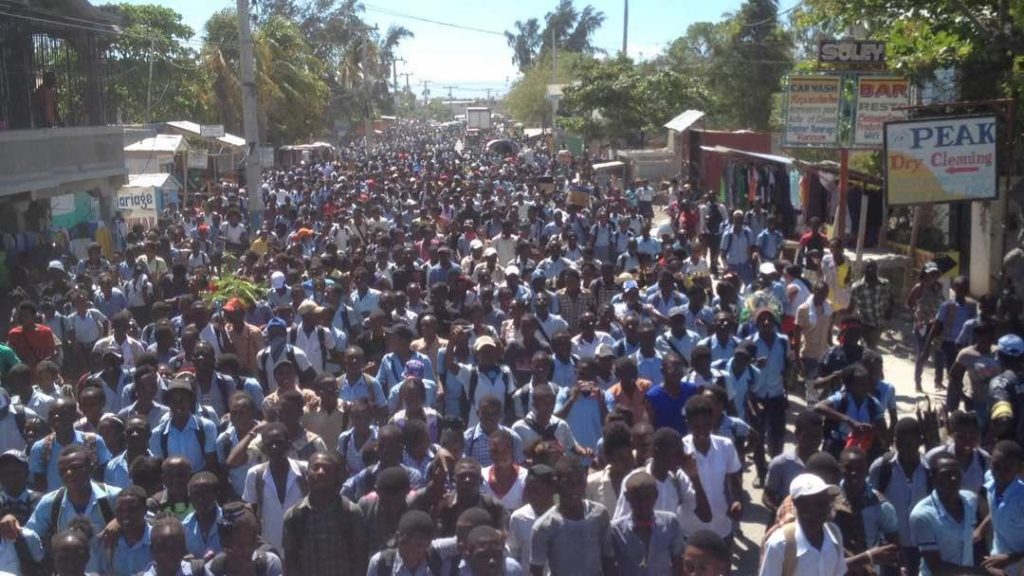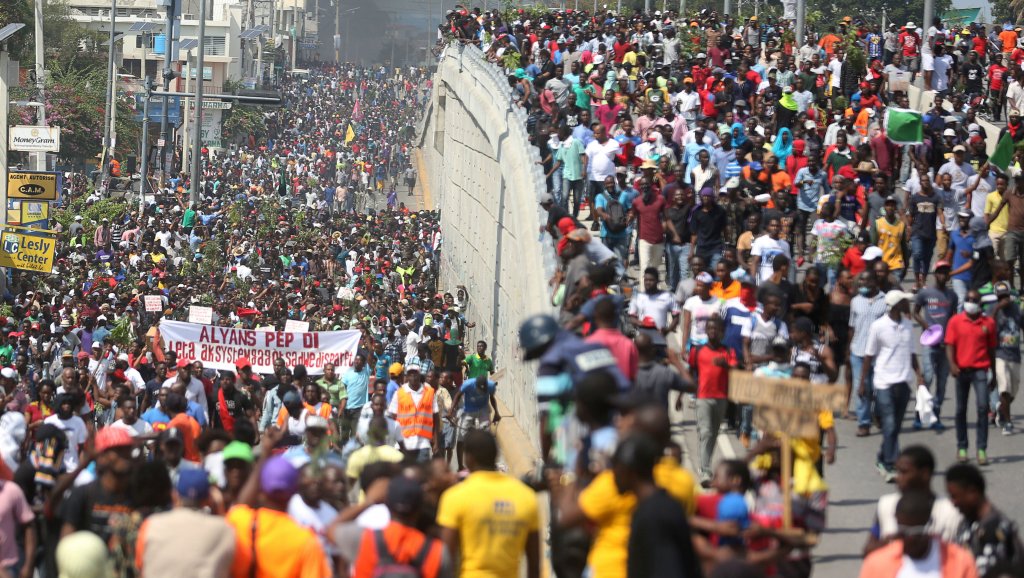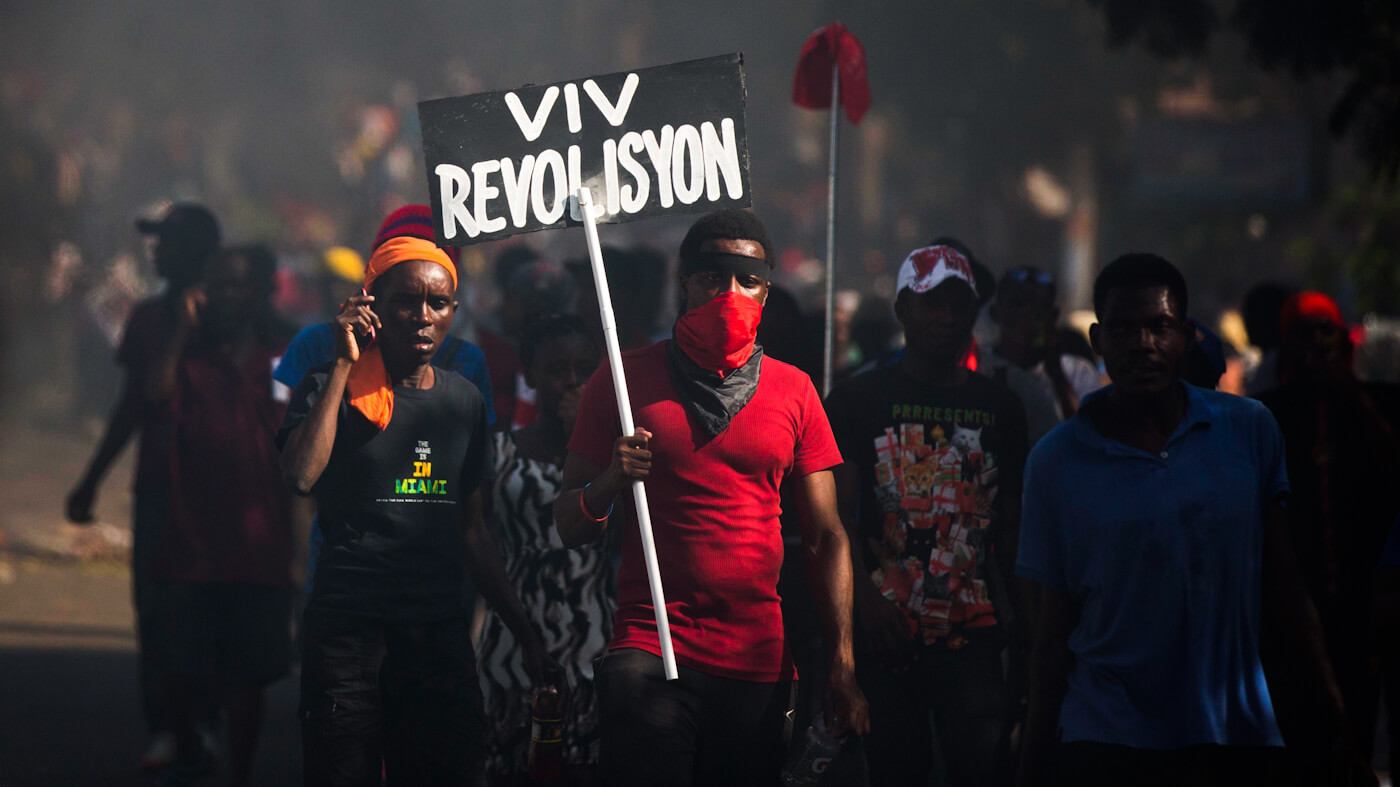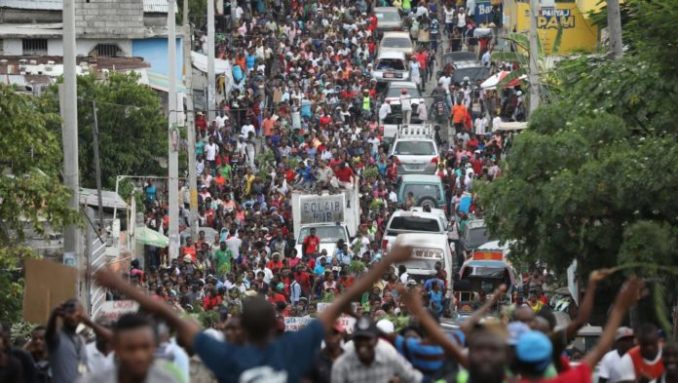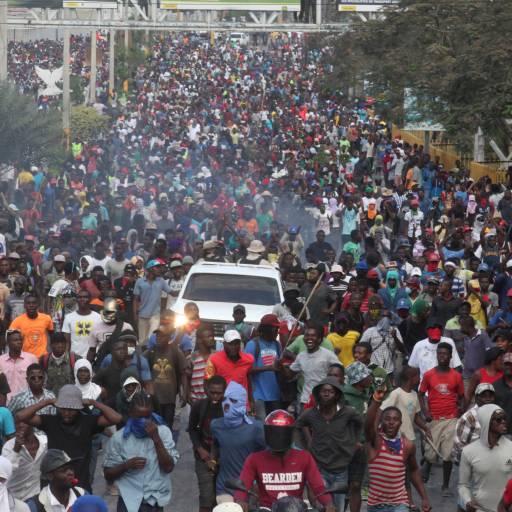
On Oct 13, thousands of Haitians marched into Port-au-Prince demanding the resignation of U.S.-backed right-wing President Jovenel Moïse. The terms of a 2018 IMF loan that stipulated reduced oil subsidies has led to massive fuel shortages and higher fuel prices. Moïse has also been accused of stealing money from Venezuela’s fuel assistance program, PetroCaribe. But the protests are about more than just fuel shortages. Centuries of colonial violence and imperialist repression—including nearly two decades of U.S. military occupation and multiple U.S. sponsored coups—have made the Republic of Haiti the poorest nation in the Western Hemisphere.
The protests include workers, peasants, students and teachers—all yearning for a life of dignity, for access to education, housing, food, and healthcare but also for national independence, free from the clutches of U.S., French, and Canadian imperialists. As the first Black nation to have achieved liberation from colonial control, the people of Haiti bear a history not only of extreme oppression, but also revolutionary struggle.
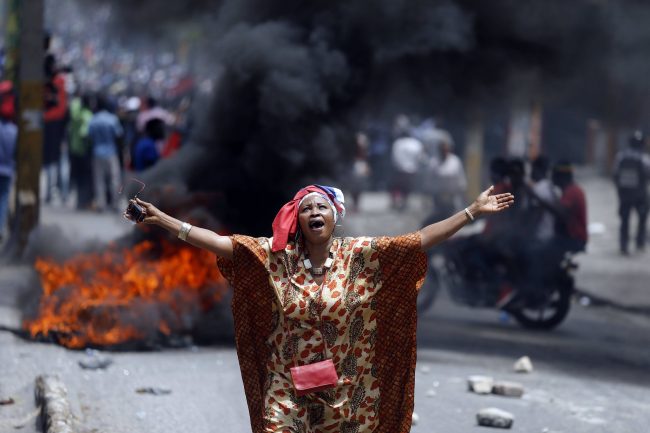
In Ecuador, similar mass protests have forced the government to concede to some of the people’s demands. After President Lenin Moreno announced that he would eliminate oil subsidies per the terms of an IMF loan, hundreds of transit workers went on strike. Thousands of other people from diverse sectors of society—women’s groups, Indigenous peoples, trade unions, social organizations, and Marxist groups—took to the streets to protest not just the latest IMF deal, but all of Moreno’s reactionary policies. Indigenous peoples lead this movement. Moreno deployed riot police and the army to repress the protesters.
The U.S. government supports the Moreno government, which is unsurprising, given its record of backing reactionary rulers in other countries to maintain its own political and economic supremacy.
Moreno has increased poverty and inequality by slashing funding for energy, public infrastructure, healthcare, and education. The IMF loan also mandated 20% cuts to public employees’ salaries, the elimination of workplace safety regulations, privatization of pensions, cuts to wages, and layoffs of up to 140,000 public employees. But the people of Ecuador are rising up against this program of austerity. After weeks of militant protests, Moreno announced that he would restore fuel subsidies.
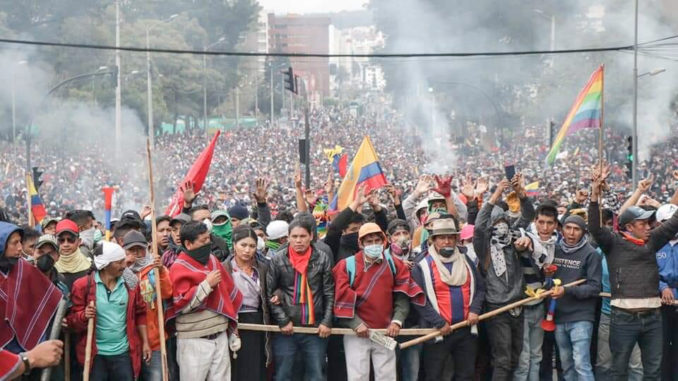
The mass movement in Ecuador continues, just as in Haiti. Both nations are ruled by reactionary presidents with ties to the imperialist U.S. government, which has only one mission: to make the poor poorer and the rich richer. As workers, we have an invaluable lesson to learn from the people of Haiti and Ecuador, who show us the power that lies in working class unity. We must come together and build our own militant workers movement from the ground up. Our oppressors will never hand us our own liberation; we must seize it for ourselves.

